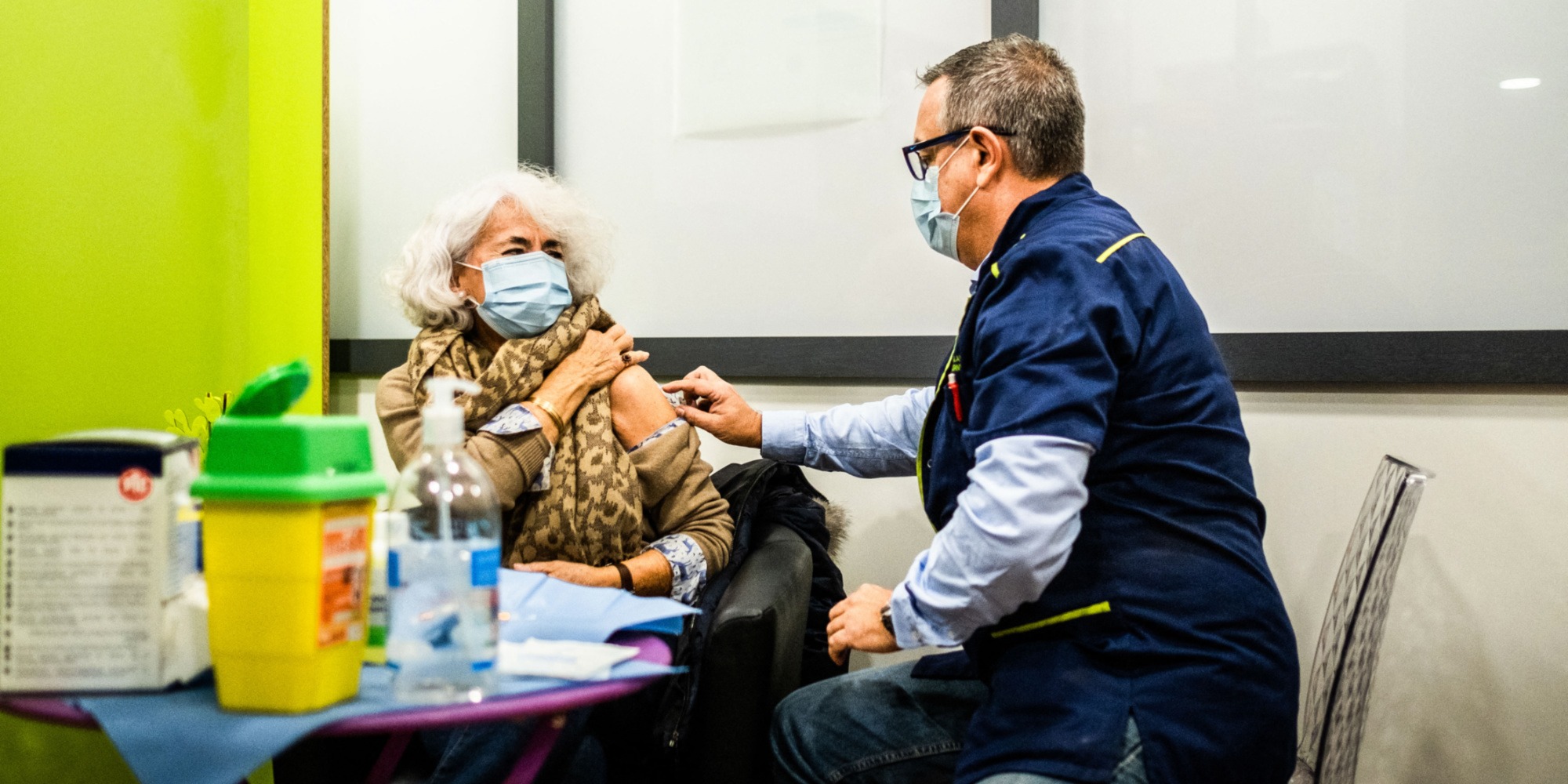Europe 1 with AFP 14:39 p.m., October 11, 2023
According to a study relayed by health authorities, some Covid vaccines increase the risk of developing Guillain-Barré syndrome, "a rare disease in which the immune system attacks the peripheral nerves, which can lead to pain, numbness, muscle weakness, or difficulty walking," they recall.Some anti-Covid vaccines increase the risk of developing Guillain-Barré syndrome but not that of Pfizer, now almost exclusively used in France, according to a study relayed Wednesday by the French health authorities. "Messenger RNA vaccines do not increase the risk of Guillain-Barré syndrome, unlike adenovirus vector vaccines," the French National Agency for the Safety of Medicines (ANSM) and the National Health Insurance Agency announced in a joint statement. Under their aegis, researchers carried out a study published in early October in the journal Neurology that attests that vaccination with messenger RNA - which includes the Moderna and Pfizer vaccines - is not associated with a risk of Guillain-Barré syndrome.
"Guillain-Barré syndrome is a rare disorder in which the immune system attacks peripheral nerves, which can lead to pain, numbness, muscle weakness, or difficulty walking," the agencies said. "In rare cases, the disease can lead to severe neurological sequelae, respiratory failure and lead to death." Isolated cases of this syndrome had been associated with having been vaccinated with AstraZeneca and Janssen vaccines, known as adenoviruses and used for a time in French vaccination campaigns before being abandoned in favor of messenger RNA vaccines, i.e. Moderna and Pfizer.
>> ALSO READ – BioNtech: the anti-covid vaccine is no longer a success and plunges the laboratory into the red
"Messenger RNA serves as the basis for booster vaccination"
The study published on Wednesday sought to assess this risk by comparing, retrospectively, the vaccination status of some 2,000 people hospitalized for this syndrome between the end of 2020 and the beginning of 2022. It shows that vaccination with AstraZeneca and Janssen is indeed associated with a more than doubled risk of developing Guillain-Barré syndrome. However, the researchers point out that this risk is significantly higher in the event of a coronavirus infection. In contrast, "there was no statistically significant increase in the risk of Guillain-Barré syndrome after administration of mRNA vaccines," the study concludes.
"This is reassuring in a context where messenger RNA is being used as the basis for booster vaccination, both now and in the future," she adds. In France, in particular, it is the Pfizer vaccine that is used almost exclusively for the campaign launched this autumn by the health authorities. However, other countries, especially developing countries, continue to make extensive use of adenovirus vaccines, particularly AstraZeneca.

